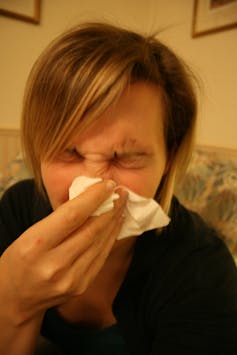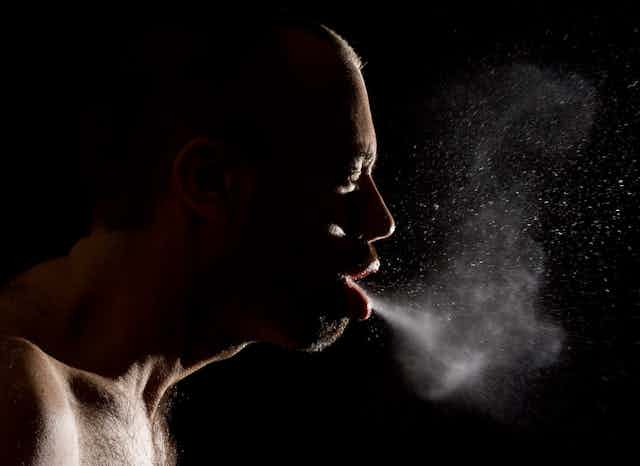Exercise is good for you – we hear it all the time. Sitting is the new smoking. Exercise reduces the risk of cancer, improves your memory and makes you happier.
But does exercise have a sinister side that we’re not aware of? There is a common idea held by athletes that intense training for an endurance event, such as running a marathon, will leave one more susceptible to illnesses.
Exercise, especially prolonged or intense exercise, does impact your immune system. The immune system protects us from disease, so upsetting the balance of these essential cells and molecules could potentially leave us susceptible to increased risk of disease.
Neutrophils are the most abundant immune cells in our blood and ingest invading microbes. Following exercise, these cells increase in number in two waves: immediately after and several hours following exercise. But while the number of neutrophils increases, their ability to ingest, and therefore destroy, microbes actually decreases.
Numbers of natural killer cells, that help kill virally infected cells, have been shown to decrease during intense training periods in elite swimmers.
The first line of defence

Secretory IgA (sIgA) is an important protein that plays a major role in protecting us from respiratory infections.
It is found in sites throughout the body such as the intestines, the lungs and importantly in saliva. sIgA binds to bacteria and viruses as they enter the body and stops them from entering our cells.
Studies have shown that when the level of sIgA in saliva is high the risk of upper respiratory tract infections (URTIs) is low, and people with sIgA deficiency suffer from URTIs more than the general population.
A study of athletes who completed the Western States 100-mile (161km) Endurance Run found that overall salivary sIgA secretion dropped by almost half, and, interestingly, those that developed an URTI had the greatest decrease in sIgA levels in the saliva.
Other studies of athletes also showed a decrease in sIgA levels following prolonged or high-intensity exercise, but not all studies agree.
Why do these changes occur?
The cause of changes to the immune system following intense exercise is unclear, although numerous factors probably play a role including hormonal and psychological factors.
Some studies suggest that decreased salivary IgA may be due to an increase in salivary cortisol. Those immune alterations may also be in part related to psychological stress induced by training.
Supporting this, in one study, stress from competing in an international championship was associated with reduction of salivary IgA in both athletes and staff members.
Do these changes lead to illness?
Do changes to neutrophils and sIgA, as well as other changes to immune cells and molecules, result in an increased risk of infections?
The science is unclear, especially given that changes seem to be transient, but the “open window” theory suggests that these short-term changes may result in increased susceptibility to infection.

The “open window” hypothesis suggests that for a short period of time following exercise the athlete is more susceptible to any microbes they are exposed to during this time. While this proves an interesting idea, there have been no studies to support it.
Avoiding illness
Some authors suggest that vitamin C supplementation might contribute to decrease in post-exercise salivary cortisol. Other studies show that a high carbohydrate diet, or a diet high in beta-glucans (found in oats, barley and mushrooms) may have some benefits for salivary cortisol and/or IgA levels and hence for post-exercise URTI occurrence.
So far, amongst all the nutrients tested in research, there is no expert recommendation on diet, but a high carbohydrate diet appears to be the best option.
The best ways to avoid illness during the training period and immediately before and after competition is to stay away from infectious people (always good advice!), wash hands regularly particularly before eating and avoiding, as much as possible, touching your face. A well-balanced diet, potentially high in carbohydrates, is recommended.
Moderate exercise is associated with positive effects in many areas of life and may be anti-inflammatory. More intense exercise may lead to changes in the immune system, but these seem to be short-lived and may be of little importance in overall health. So don’t let these changes put you off entering your first, or next, race!

